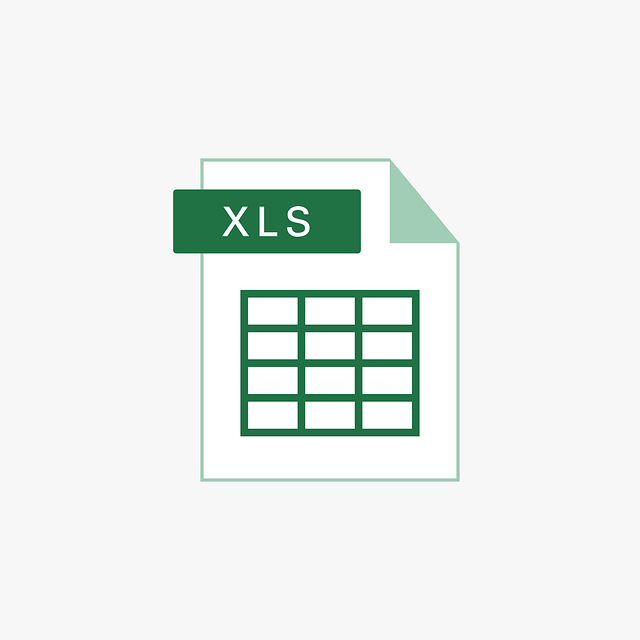How to Demonstrate Analytical Skills on Your CV
Got a knack for cracking puzzles, solving Rubik's cubes, or spotting trends in chaos? It’s time to make your analytical skills dazzle on your CV! In 2025, employers are on the hunt for candidates who can think critically, analyse data, and solve problems at the drop of a hat.

Whether you’re a data guru, a marketing maestro, or a fresh grad, showcasing strong analytical skills can make your CV stand out like a beacon of light in a dark and stormy job market.
Table of Contents
-
Defining Analytical Skills for a Standout CV
-
Why Analytical Skills Are a Must-Have in 2025
-
Analytical Skills Across Your CV Sections
-
CV Analytical Skills Examples
-
Tailoring Analytical Skills for Specific Industries
-
Level Up Your Analytical Skills for 2025 Success
-
Frequently Asked Questions (FAQs)
Defining Analytical Skills for a Standout CV
Analytical skills are your ability to collect, interpret, and evaluate information to make informed decisions or solve problems. Think of them as your brain’s superpower for breaking down complex data, spotting patterns, and drawing logical conclusions. They include critical thinking skills, data analysis skills, research, and problem-solving. On your CV, analytical skills show employers you can handle challenges, optimise processes, and drive results.
Why Analytical Skills Are a Must-Have in 2025
In 2025, these skills are non-negotiable across industries.
But what makes analytical skills SO important in today's climate? And have you included them in your CV?
Employers crave candidates who can sift through data, solve complex problems, and make smart decisions in a fast-paced, tech-driven world.
A 2024 LinkedIn report, The Future of Recruiting notes that 75% of hiring managers prioritise analytical skills. They’re key for coding and system optimisation; in business, they drive strategic planning; in marketing, they fuel campaign insights...
It's paramount to show you’re not just a doer - you’re a thinker who can add value.

Analytical Skills Across Your CV Sections
So, how can you shoehorn these sought-after skills into your CV?
Crafting a Personal Statement That Highlights Analytical Skills
Your personal statement is your CV’s first impression - make it count by weaving in those key analytical skills. As always, mention how you’ve used these skills to achieve results.
Example: “Detail-oriented data analyst with 3 years of experience, leveraging analytical skills to boost sales by 20% through data-driven insights.” This highlights critical thinking and measurable impact.
For a non-data role, try: “Marketing professional skilled in analysing consumer trends, increasing campaign ROI by 15%.”
Focus on outcomes, using keywords like “analysed” or “optimised” to show your analytical prowess. Tailor it to the job, ensuring recruiters see your problem-solving ability right from the start.
Showcasing Analytical Skills in Your Work Experience
In your work experience section, use action verbs and results to demonstrate analytical skills.
Example: Marketing Specialist, 2022–2025 – “Analysed customer data to identify trends, improving campaign engagement by 25%.” This uses “analysed” and a measurable outcome.
For a non-data role: Project Manager, 2020–2025 – “Evaluated project risks, reducing delays by half through strategic planning.” Highlight specific tasks like “researched market trends” or “optimised workflows” to show your process.
Even in unrelated roles, note problem-solving: “Resolved client issues by analysing feedback, enhancing satisfaction by 10%.” This proves your analytical skills are practical and impactful!
Reflecting Analytical Skills Through Education and Training
Your education section can showcase analytical skills, especially for recent grads who will place greater emphasis on this throughout their CV. Mention coursework or projects that required analysis.
Example: BSc in Business, University of Leeds, 2022–2025 – “Completed a dissertation analysing consumer spending patterns, achieving a 90% grade.”
Highlight relevant training: “Certified in Data Analysis, Coursera, 2024 – Mastered statistical tools like SPSS.”
If you’ve taken short courses, include them: “Completed Excel for Data Analysis course, improving data visualisation skills.”
This shows you’ve honed analytical skills academically or professionally.

CV Analytical Skills Examples
Here is a cross-section of examples for you to get your teeth into!
Data Analyst Transitioning to a New Industry
Personal Statement: Analytical data analyst with 5 years of experience, skilled in interpreting complex datasets to drive decisions, now transitioning to business consulting with a 20% efficiency increase in past projects.
Work Experience: Data Analyst, TechMonkey, 2020–2025
- Analysed sales data, identifying trends that boosted revenue by 15%.
Skills: Data interpretation, critical thinking.
This CV emphasises data analysis and efficiency, tailored for a consulting role requiring problem-solving across industries.
Marketing Professional Highlighting Campaign Insights
Personal Statement: Creative marketing specialist with 3 years of experience, using analytical skills to optimise campaigns, achieving a 25% increase in engagement through data-driven strategies.
Work Experience: Marketing Specialist, AdAnAgency, 2022–2025
- Evaluated campaign metrics, adjusting strategies to improve ROI by 15%.
Skills: Market research, data analysis.
This example showcases analytical skills in campaign optimisation, ideal for marketing roles needing strategic insights.
Recent Graduate Applying for a Business Role
Personal Statement: Recent business graduate passionate about analytics, with coursework in data interpretation, eager to apply critical analytical thinking skills to support strategic business decisions.
Education: BSc in Business, University of Manchester, 2022–2025
- Analysed market trends for a dissertation, earning a First-Class grade.
Skills: Research, problem-solving.
This CV highlights academic analytical skills, perfect for entry-level business roles in 2025.
Tailoring Analytical Skills for Specific Industries
What you want to do will determine the skills you want to shout about. Remember: always check the job description to beat the Applicant Tracking System (ATS) - aka the digital bouncers of the exclusive recruiter club.
Tech and Data Roles
In tech and data roles, analytical skills are your golden ticket to proving you can tackle complex challenges.
- Highlight your ability to break down intricate problems into manageable parts, focusing on how you identify patterns or inefficiencies.
- Emphasise your knack for logical reasoning, especially in areas like system optimisation or debugging.
- Show that you’re comfortable with tools and methodologies that drive data-driven decisions.
- Mention your capacity to interpret large datasets, as this demonstrates your readiness to handle the demands of tech environments.
Business and Finance Roles
For business and finance, analytical skills should underscore your strategic thinking and decision-making prowess.
- Focus on your ability to evaluate trends, assess risks, and forecast outcomes that impact organisational goals.
- Highlight how you can dissect financial data or market insights to inform long-term planning, showing your knack for turning numbers into actionable strategies.
- Emphasise your attention to detail, as precision is key in roles where small errors can have big consequences.
- Position yourself as someone who thrives on identifying opportunities for growth or cost savings, ensuring your CV speaks to the priorities of business leaders.
Creative Roles
In creative roles, analytical skills can elevate your innovation by grounding it in insight.
- Show how you use analysis to understand trends, audience behaviours, or campaign performance, ensuring your creative output is both impactful and strategic.
- Demonstrate your ability to evaluate feedback or metrics to refine your work, demonstrating a balance of creativity and logic.
- Focus on how your analytical mindset helps you anticipate needs or identify opportunities for unique solutions, setting you apart in a competitive field.
Healthcare Roles
In healthcare roles, analytical skills can enhance your ability to deliver exceptional patient care through careful assessment.
- Remind recruiters how you've used analysis to interpret patient data, identify health trends, or evaluate treatment outcomes so your decisions are both effective and empathetic.
- Showcase your capacity to assess complex medical information, balancing precision with compassion to improve patient well-being.
- Display how your analytical mindset allows you to anticipate challenges, such as resource allocation, and find solutions that prioritise care quality.

Education Roles
In education roles, analytical skills can take your teaching to new heights by focusing on student success.
- Emphasise your knack for evaluating teaching methods, assessing performance, or spotting learning gaps, adapting your strategies to make a real impact.
- Show how you interpret educational data, combining innovation with evidence to improve outcomes and anticipate student needs for better engagement.
- Harness A/B testing when making use of new technologies in the classroom to see if they are more effective than existing methods.
Engineering Roles
For engineering roles, analytical skills can transform your work by blending precision with fresh ideas.
- Highlight your ability to assess project needs, pinpoint inefficiencies, or ensure structural reliability, crafting solutions that are both dependable and effective.
- Focus on interpreting technical data with a balance of creativity and accuracy, showing how you foresee challenges like resource limitations and devise optimised fixes.
- Use evidence of past projects to pre-empt issues with materials or logistics long before they come into play.
Level Up Your Analytical Skills for 2025 Success
Improving your analytical skills can make your CV even more impressive in 2025, and we’ve got the steps to get you there faster than you can solve that Rubik’s cube!
Follow this guide to boost your skills on your resume.
- Step 1: Practice puzzles like Sudoku daily - 10 minutes sharpens your problem-solving.
- Step 2: Take online courses on platforms like Coursera; try “Data Analysis with Python” to build technical skills.
- Step 3: Join critical thinking workshops to enhance decision-making.
- Step 4: Apply your skills in real-world scenarios - analyse your budget or volunteer to evaluate charity data.
- Step 5: Use action verbs like “analysed” or “optimised” on your CV: “Optimised workflows, saving 10 hours weekly.”
- Step 6: Quantify results - numbers like “increased sales by 15%” grab attention.
- Step 7: Tailor skills to the job description, prioritising “data visualisation” for tech roles.
- Step 8: Add certifications like “Google Data Analytics” to your education section.
- Step 9: Include analytical hobbies like “competitive chess” to show depth.
- Step 10: Naviagate ATS compatibility with keywords like “problem-solving” used naturally.
Need help showcasing other talents? Read our blog on communication skills.
The CV Centre can polish your CV - get a free CV review today!
Frequently Asked Questions
How Do I Demonstrate Analytical Skills if I Lack Formal Experience?
You can demonstrate analytical skills on your CV without formal experience by highlighting relevant education or hobbies. Showcase projects from university, such as analysing data for a research paper that earned a high grade. Include hobbies like competitive chess to reflect strategic thinking. Volunteer work, like evaluating charity data to improve fundraising, also counts. These instances prove your analytical abilities.
Should I Include Analytical Skills in my Cover Letter too?
Yes, you should include analytical skills in your cover letter to strengthen your CV’s impact. Mention a key achievement, such as driving a 20% sales increase through data insights. Tie these skills to the role: “I’m eager to apply my data analysis expertise to your team.” Keep it concise, focusing on one instance. This consistency highlights your analytical strengths, making a strong impression on recruiters.
Can Hobbies on my CV Reflect Analytical Skills?
Yes, hobbies on your CV can reflect analytical skills if they’re relevant to the role. Chess showcases strategic thinking, while solving Sudoku puzzles highlights problem-solving abilities. Data-focused hobbies, like analysing stock market trends, also work well. Choose activities that align with the job’s needs to add value. This approach demonstrates your analytical mindset, helping your CV make a strong impression in 2025’s job market.
How Many Analytical Skills Should I List on my CV?
You should list 3–5 analytical skills on your CV to keep it focused and impactful. Prioritise skills from the job description, such as data analysis or critical thinking, for finance roles. Spread them across sections: “Analysed data, boosting efficiency by 15%.” More can overwhelm recruiters, so balance is key.
What Types of Analytical Skills are Most Valued By Employers in 2025?
Employers in 2025 value analytical skills like critical thinking, data interpretation, and problem-solving. Skills such as statistical analysis and forecasting are prized in tech and finance roles for their precision. In creative fields, trend analysis and audience insight are key. Focus on skills that match the job’s needs, showcasing your ability to turn data into decisions. This ensures your CV aligns with what recruiters seek.
How Can I Show Analytical Skills if I’m Changing Careers?
You can show analytical skills when changing careers by highlighting soft skills and transferable abilities from past roles or hobbies. Emphasise skills like problem-solving from previous jobs: “Evaluated project risks, reducing delays by 30%.” Include education, such as a course in data analysis. Hobbies like competitive chess also reflect strategic thinking.

